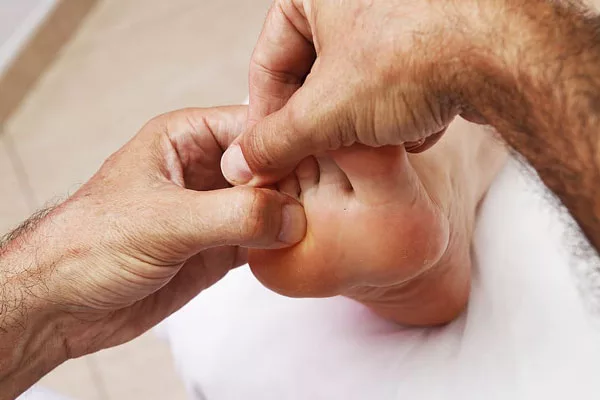Acupuncture: A Pointed Discussion on Its Benefits and Risks for Seniors
Table of Contents
Introduction:
Ah, acupuncture! The ancient art that has many of us intrigued, curious, and, let’s admit it, a tad nervous.
Especially for the silver-haired brigade, the idea of voluntarily getting poked with needles might sound like a plot twist in a retirement adventure.
But what’s the real story behind those tiny needles? Let’s unravel the mystery of acupuncture and see if it’s the right “point” for you!
The Ancient Art of Acupuncture:
Acupuncture, with its roots deep in ancient China, dates back more than 2,500 years. This traditional practice was based on the belief that our body’s energy, or Qi (pronounced “chee”), flows through channels called meridians.
When this flow gets blocked, it results in health issues. The solution? Tiny needles strategically placed to unblock these channels. Over time, this Eastern gem traveled westward, gaining popularity and acceptance.
Today, it’s not just a part of traditional Chinese medicine but has found its place in modern Western therapeutic practices too.
How Does Acupuncture Work?
At its core, acupuncture is about balancing the body’s energy. But let’s get past the mystical aura and delve into the science. The concept revolves around Qi and meridians.
Think of Qi as your body’s Wi-Fi signal. When it’s strong, everything runs smoothly. But when there’s a disruption, you’re left buffering.
Recent studies suggest that acupuncture might stimulate nerves, muscles, and connective tissues.
This stimulation boosts our body’s natural painkillers and increases blood flow. So, while the idea of energy channels might sound a bit “out there” for some, there’s undeniable science backing the benefits of acupuncture.
The Many Benefits of Acupuncture:
- Pain Relief: From arthritis to those pesky migraines that seem to have a mind of their own, acupuncture offers relief without the side effects of medications. It’s like having a mute button for pain.
- Improving Sleep Quality: Insomnia, be gone! With acupuncture, you might find yourself diving into dreamland faster than you can say “counting sheep.” And the best part? Waking up feeling refreshed and rejuvenated.
- Boosting Mood and Reducing Anxiety: In today’s fast-paced world, stress and anxiety have become unwelcome guests. Acupuncture can be the bouncer that shows them the door, helping you find your inner zen.
Does Acupuncture Hurt? Debunking Myths:
The million-dollar question! The sensation of acupuncture is nothing like getting an injection or a blood draw.
Most people feel minimal pain as the needles are inserted. Some even find the experience relaxing. Yes, you heard that right! Relaxing.
Once the needles are in place, they might be gently moved or twirled, and you might feel a mild tingling sensation.
But fear not, it’s all part of the process. Remember, these aren’t your average sewing needles. They’re thin, specially designed, and meant to glide into the skin with ease.
Acupuncture Needles: Not Your Average Sewing Kit:
These needles are the unsung heroes of acupuncture. Thin, sterile, and designed for single use, they ensure the process is safe and hygienic.
And for those worried about safety, rest assured. Licensed acupuncturists undergo rigorous training and adhere to strict guidelines to ensure patient safety.
The Flip Side: Disadvantages of Acupuncture:
Like everything in life, acupuncture has its pros and cons. While side effects are rare, some people might experience minor bruising, dizziness, or discomfort. It’s essential to find a certified practitioner who knows their craft.
And always, always consult with your primary care physician before diving into the world of acupuncture.
Acupuncture Benefits and Risks: A Balanced View:
Acupuncture offers a plethora of benefits, but it’s not a one-size-fits-all solution. It’s essential to weigh the pros and cons, do your research, and consult with professionals.
After all, health is a journey, and every decision should be well-informed.
Conclusion:
Acupuncture, with its rich history and modern-day relevance, offers a unique blend of tradition and science.
Whether you’re looking to mute that chronic pain, find your inner calm, or simply explore alternative therapies, acupuncture might just be the answer.
So, the next time someone talks about getting to the “point,” you’ll know it’s not just a pun but a path to well-being!
Frequently Asked Questions
What exactly is acupuncture?
Acupuncture is an ancient Chinese medical practice that involves inserting thin needles into specific points on the body. It’s believed to balance the body’s energy and stimulate healing.
How does acupuncture help in managing pain?
Acupuncture is believed to stimulate nerves, muscles, and connective tissues, which can boost the body’s natural painkillers and increase blood flow. This can help in alleviating pain from various conditions like arthritis, migraines, and more.
I’m terrified of needles. Will acupuncture hurt?
Most people find acupuncture to be much less intimidating than they imagined. The needles are very thin, and the sensation is often described as a tiny pinch, followed by a feeling of relaxation. It’s not like getting a shot or a blood draw.
How long does an acupuncture session typically last?
A typical session can last anywhere from 20 minutes to an hour, depending on the treatment. The initial consultation might take a bit longer as the practitioner will want to get a full understanding of your health history and concerns.
Are there any side effects to acupuncture?
While side effects are rare, some people might experience minor bruising, dizziness, or discomfort. It’s essential to communicate with your acupuncturist about any discomfort you feel during or after the session.
How do I choose a good acupuncturist?
Look for a licensed and certified practitioner. Recommendations from friends or family can also be helpful. Always ensure that the acupuncturist uses sterile, single-use needles to ensure safety.
Can acupuncture help with conditions other than pain?
Absolutely! Acupuncture has been used to treat a variety of conditions, including insomnia, anxiety, digestive issues, and even infertility. It’s always best to consult with a practitioner about your specific concerns.
Is acupuncture covered by insurance?
Coverage varies by provider and plan. It’s best to check with your insurance company to see if acupuncture is covered and if there are any limitations or requirements.
How often should I get acupuncture treatments?
The frequency of treatments varies based on individual needs. Some people might benefit from weekly sessions, while others might only need monthly visits. Your acupuncturist will recommend a treatment plan based on your specific needs.
Are there any conditions where acupuncture is not recommended?
While acupuncture is safe for most people, there are certain conditions where caution is advised. For instance, individuals with bleeding disorders or those on blood thinners should inform their acupuncturist. Always consult with your primary care physician before starting any new treatments.




